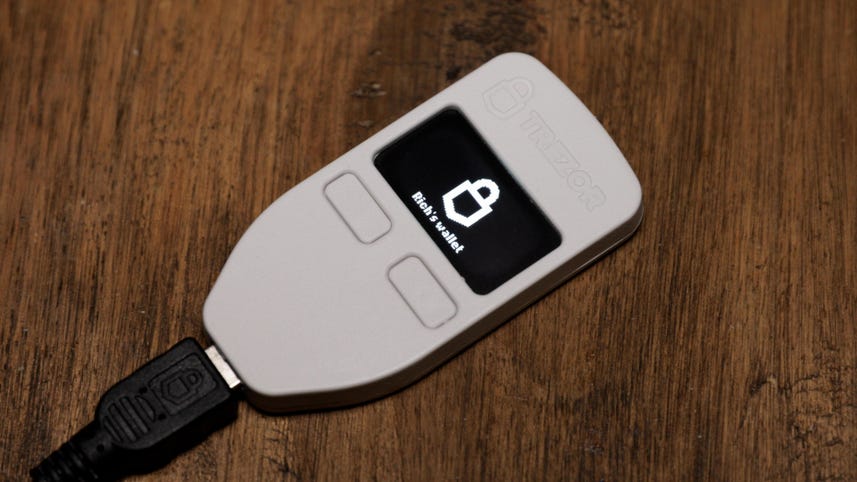
San Francisco man has over $300 million worth of Bitcoin, but he forgot his password and can't access it.
And he only has two more password guesses before he's locked out and loses it forever.
If you want to avoid this kind of nightmare.
Here's my advice on how to store your cryptocurrency safely.
When you buy cryptocurrency, like Bitcoin it gets stored in what's called a wallet.
It has a private key associated with it.
The private key is sort of like a password, a long string of numbers and letters that are assigned to your wallet.
If you want your coins to stay safe, you need to keep the private key safe.
Now there are a few different types of wallets to store your crypto The easiest way is to store it right on the exchange where you bought it.
Exchanges such as Coinbase or Gemini allow you to buy, sell and manage your crypto right on their platform.
With these exchanges, they hold on to your private key.
You don't have access to it.
That means you need to trust the company to keep it safe.
Just like you would need to trust any online company with your data.
So you may not want to store large amounts on the exchange.
There's also the option of going with the financial app, that does more than just crypto.
Companies like PayPal and Robin Hood have added options to buy and sell cryptocurrency.
But with these apps, they may leave you stuck doing transactions in their environment.
So if you use PayPal and you have to cash out with PayPal, you also don't have access to the private keys.
Elan musk recently tweeted any crypto wallet they won't give you your private keys should be avoided at all costs.
That's because you're trusting those precious private keys to a third party.
For more control you can store your coins on your own computer in a digital wallet.
You use software to manage it.
However, there is some risk of getting hacked and losing your money if the computer is connected to the internet.
If you have a large sum of coins, it's best to keep them in what's known as a cold wallet.
Which means your private keys are stored on a device that's not connected to the internet, like a separate hard drive or thumb drive.
Companies like trezor and ledger make special drives especially for cryptocurrency wallets.
There are extra protections built in the software of these drives.
These companies say sensitive information isn't exposed even when it's plugged into your computer.
I have here the Tresor one.
It's a little device that you plug into a computer via USB.
If I want to access my coins, I have to plug it in and then enter a PIN What I like is that this is a bit of a combination solution, because if I lose the Tresor I can still access my coins.
When you first set up the device, it gives you a bunch of random words known as a recovery.
The seed is very important and should be written down and kept in a safe place.
So if the wallet is lost or broken, I can use the seed to recover my coin So what happened with that unfortunate man who forgot his password?
Well, he stored the private keys to his bitcoin wallet on a highly encrypted hard drive called iron key.
The drive only allows 10 password guesses before it locks up.
It's not a typical hardware wallet designed for crypto so no pin, no recovery seed, just 10 password attempts and then poof it's gone.
[MUSIC]
I know Crypto can be complicated and confusing.
So if you're new, just ease yourself into it, do some research and then pick the method that feels most comfortable to you.
For me, this treasure wallet works great and I always have that backup recovery seat if needed.
So what about you?
How do you store your Bitcoin riches?
Let me know in the comments.